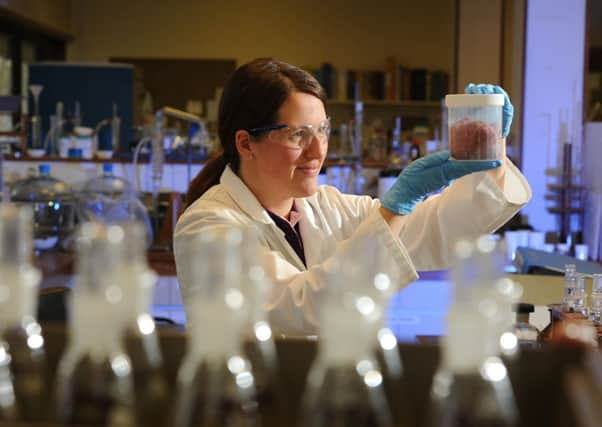A third of food fails contamination tests in Yorkshire - new data


Baroness Crawley said in a recent analysis of food samples in the county, a third had been adulterated with other substances.
Her warning comes in the light of the horsemeat scandal last year.
Advertisement
Hide AdAdvertisement
Hide AdLady Crawley, a Labour peer, called on the Government at question time in the Lords to recognise the “serious” level of the “food adulteration crisis”.
She said: “Reporting of food fraud has increased by 66% since 2009, while the number of samples taken by local authorities has decreased by 26%.
“Call me old fashioned but I like my ham to actually be ham not poultry died pink or meat emulsion, whatever that is. I want fruit juice to be just that and not laced with vegetable oil that is used in flame retardants.
“Of the 900 samples that were tested by West Yorkshire Trading Standards, a third were not what they were meant to be.”
Advertisement
Hide AdAdvertisement
Hide AdShe said Professor Chris Elliott’s first report into how to protect the safety and authenticity of food following the horsemeat scandal had been “highly critical of the current system’s ability to tackle food crime”.
She demanded: “What is the Government doing about the depletion of trading standards departments across the country whose job it is to track down organised criminal gangs in the food sector?”
Department for Environment, Food and Rural Affairs minister Lord de Mauley said the Government took the threat of food fraud “very seriously”.
“Following the horsemeat fraud last year, we have been working with industry and local authorities to improve our intelligence sharing to target sampling and enforcement better,” he said.
Advertisement
Hide AdAdvertisement
Hide Ad“The sample carried out by the West Yorkshire Trading Standards demonstrates the action being taken by local authorities across the United Kingdom to tackle known problem areas and in response to complaints. The findings are not representative of all food products”.
He said that West Yorkshire Trading Standards had tested 873 samples in a six-month period and gave 331 an “adverse report”.
But he said many of the issues did not relate to food adulteration but to foreign language labelling or inflated health claims.
He added: “Nevertheless, it is true that a material proportion were for fraudulent purposes such as meat substitution and West Yorkshire Trading Standards are taking action.”
Advertisement
Hide AdAdvertisement
Hide AdLord de Mauley said there were 86,000 food safety composition and authenticity tests carried out during 2012-13 and the Food Standards Agency had increased additional funding it provides to local authorities to support testing to £2.2million this year.
For the Opposition, Lord Grantchester said: “This is fraud on a massive scale made easier by this Government’s changes to the structure of regulation that weakened consumer protection by fragmenting the responsibilities of the Food Standards Agency between different bodies.
“Will the Government recognise its mistake and revisit its decision?”
Lord de Mauley said he had seen “no evidence” that the changes had had “any material impact on the response to the horsemeat fraud incident” which was “EU wide”.